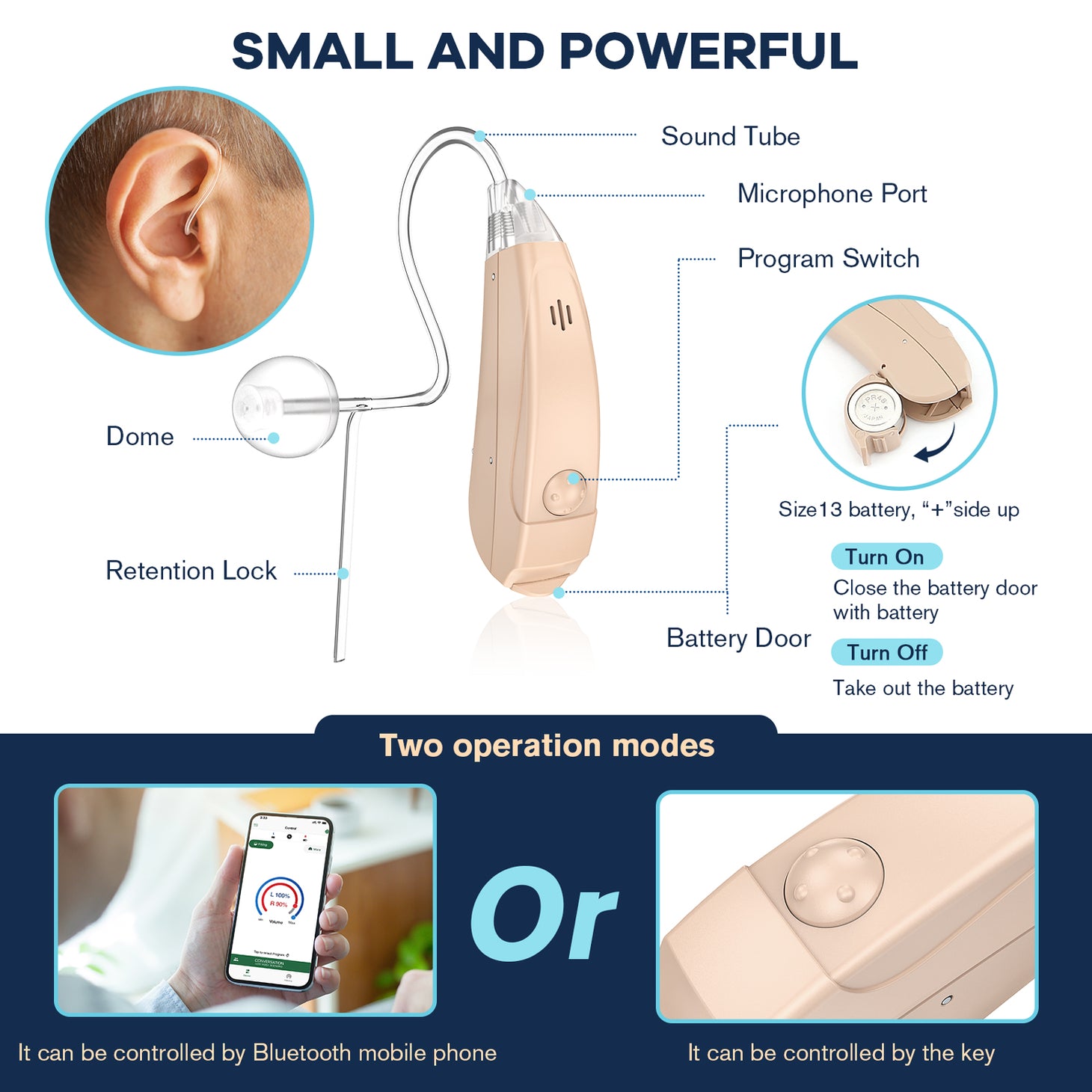In recent years, the smart Bluetooth hearing aid has emerged as a revolutionary tool for individuals with hearing impairments. These advanced devices not only enhance sound quality but also integrate seamlessly with modern technology, offering users unprecedented control over their auditory experiences. But how did we arrive at this point, and what does the future hold for hearing aids?

Understanding Smart Bluetooth Hearing Aids
A smart Bluetooth hearing aid is designed to connect wirelessly to smartphones, tablets, and other devices. This connectivity allows users to stream audio directly to their hearing aids, making phone calls, listening to music, and enjoying podcasts more accessible than ever. But what are the key features that set these devices apart from traditional hearing aids?
- Wireless Connectivity: Smart hearing aids utilize Bluetooth technology to connect with various devices.
- Customizable Settings: Users can adjust sound profiles through dedicated apps, tailoring their experience to different environments.
- Health Monitoring: Some models include features that track physical activity and health metrics.
- Noise Reduction: Advanced algorithms help filter background noise, enhancing speech clarity.
The Impact of Technology on Hearing Aids
The integration of technology into hearing aids has significantly improved the quality of life for many individuals. With features like automatic adjustments based on the surrounding environment, users can enjoy a more natural listening experience. Have you ever wondered how these advancements affect daily interactions?
For instance, when attending a crowded event, a smart Bluetooth hearing aid can automatically adjust its settings to focus on the speaker while minimizing background noise. This capability not only enhances communication but also fosters social engagement, allowing users to participate fully in conversations.
Future Trends in Smart Bluetooth Hearing Aids
As technology continues to evolve, so too will the capabilities of smart Bluetooth hearing aids. Future innovations may include:
- Artificial Intelligence: AI could enable hearing aids to learn user preferences and adapt in real-time.
- Augmented Reality: Imagine hearing aids that provide visual cues to enhance auditory information.
- Improved Battery Life: Advances in battery technology may lead to longer-lasting devices.
Conclusion: Embracing the Future of Hearing
The evolution of the smart Bluetooth hearing aid represents a significant leap forward in auditory technology. As these devices become more integrated into our daily lives, they offer not just improved hearing but also a pathway to greater independence and social interaction. By embracing these advancements, individuals with hearing impairments can look forward to a future filled with clearer sounds and richer experiences.
In summary, the journey of hearing aids has transformed dramatically, and the future promises even more exciting developments. Whether you are considering a smart Bluetooth hearing aid for yourself or a loved one, understanding these innovations can help you make informed decisions that enhance quality of life.








